As a rapidly growing economy , Vietnam is uniquely positioned to lead the transition to a greener and more sustainable industrial sector. However, the challenges of the transition are not small.
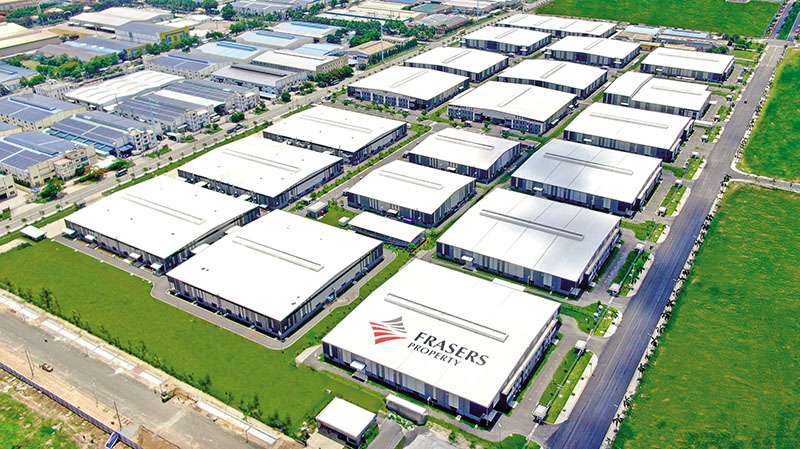 |
| Many investors such as LOGOS, SLP, Emergent, Frasers Property... have applied energy saving solutions in projects in Vietnam. |
Pioneering in the field of manufacturing
Geopolitical advantages are making Vietnam an important hub of regional and global supply chains.
With its location near China - the world 's manufacturing center, and being an important member of the ASEAN Economic Community (AEC), Vietnam has many conditions to attract and promote continuous growth in foreign direct investment (FDI) flows, especially in the manufacturing sector.
However, this growth is accompanied by an urgent need to comply with global sustainability standards, including those from the European Union (EU) - one of Vietnam's important export markets.
Among them, it is necessary to mention the birth of the Corporate Sustainability Reporting Directive (CSRD, effective in fiscal year 2024). CSRD marks a significant change in the green transformation process when it requires companies to fully and detailedly disclose activities related to environmental, social and governance (ESG) sustainability.
Next, the EU's Carbon Border Adjustment Mechanism (CBAM), which comes into effect in 2026, imposes a carbon tax on imports based on their emission intensity, which will affect many of Vietnam's exports such as iron, steel, aluminum, cement and fertilizer.
To integrate more deeply into the global value chain as well as maintain and develop strategic business relationships, especially with EU partners, manufacturing enterprises are forced to be proactive and accelerate the application of environmentally friendly measures.
In Vietnam, manufacturing companies are leading the sustainability efforts. More than 50% of LEED-certified projects in Vietnam are in the industrial sector, including European companies such as Heineken, Nestlé, Tetra Pak... and many domestic companies such as Hoa Phat Steel, Duy Tan Plastic.
Many businesses have implemented sustainability solutions, such as packaging recycling, wastewater treatment and the use of renewable energy sources, which are highlighted in their public sustainability reports. Many are making significant progress in switching to sustainable energy sources, optimizing operations to reduce CO2 emissions and implementing water efficiency.
This commitment is critical to maintaining competitiveness in a global marketplace that increasingly prioritizes sustainability.
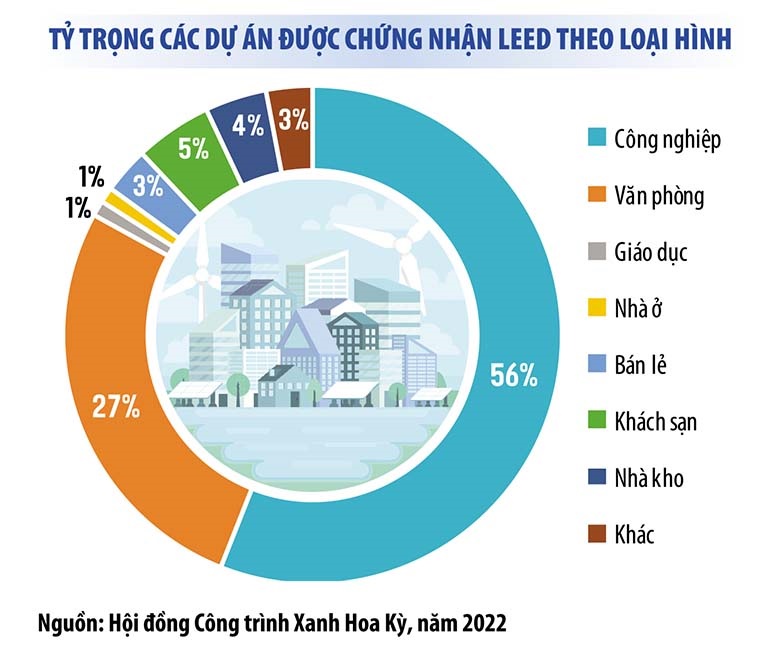 |
ESG trends and real estate developers
ESG compliance requirements are forcing real estate developers in Vietnam to step up investment in green projects.
Developers such as LOGOS, SLP, Emergent and Frasers Property are incorporating energy-saving measures such as solar power and LED lighting into their new industrial and logistics projects. Many of these developers’ projects have been awarded green certifications such as LEED, Lotus and Edge to enhance their market appeal and competitiveness and reduce operating costs.
Industrial park developers such as DeepC and VSIP are also establishing sustainable ecosystems by integrating renewable energy, allocating land for planting trees and implementing advanced water conservation methods, such as rainwater harvesting and water recycling.
These measures are not only important for environmental sustainability, but also help attract high-end tenants who already have sustainability commitments.
In the industrial real estate sector, the integration of value-added services and sustainable operations is emerging as an inevitable trend when many projects combining industrial parks with residential areas to maximize benefits for investors, businesses and people are of particular interest to investors.
The industrial parks developed by Amata and DeepC are piloting eco-industrial park models. In these zones, solar energy systems and wastewater recycling are installed, promoting industrial symbiosis.
Specifically, Amata has improved its eco-industrial park index from 41% in early 2020 to 86% in January 2024 through initiatives such as using energy-saving equipment, recycling wastewater, installing solar panels and strengthening the social management system, according to information published on the Group's homepage.
Similarly, DeepC has undertaken a number of green projects, including installing wastewater treatment and reuse systems, converting waste to energy, and using solar panels on coastal alluvial areas. Deep C’s 2023 Sustainability Report has shown the efforts of the business and its tenants to explore and implement new measures to save water and improve resource efficiency. This has helped DeepC save approximately 5.8 million kWh of electricity, 90,000 m³ of water, and reduce 10,588 tons of CO2 emissions in 2022 alone, among other achievements…
Orientation for sustainable transformation
Despite many successes, the transition towards sustainable development and green development in Vietnam is facing many challenges.
These include resource constraints, technology gaps and limited awareness. A comprehensive legal framework for eco-industrial parks and related sustainability aspects is also in the process of being completed, with no clear regulations on the reuse and sale of treated wastewater. Furthermore, the lack of financial incentives makes the above challenges even greater.
To overcome and maintain development momentum, firstly, it is necessary to promote and develop strategic partnerships and cooperation between the public and private sectors.
Second, Vietnam needs to accelerate the development of a comprehensive roadmap and supporting legal framework to achieve net zero carbon emissions by 2050.
Third, having mechanisms to promote green finance markets, providing specific financial incentives and support for the adoption of green technologies, as well as accessible green finance options are important steps to accelerate this transition. Establishing an open market for the trading of carbon and emissions credits would also further accelerate efforts towards a carbon-neutral economy by 2050.
Fourth, with the private sector, developers and investors play a very important role by integrating sustainable activities into projects. This approach allows businesses to meet the growing development requirements in the future as well as contribute to the country's overall sustainability goals.
Furthermore, the public and private sectors must work together to raise public awareness of sustainability and empower stakeholders to integrate sustainable practices into all daily operations. By prioritizing energy efficiency, reducing emissions and promoting a culture of sustainability, Vietnam can strengthen its leadership in the global green transition, attract investors and strengthen its competitive advantage.
Last but not least, the competitiveness and attractiveness of industrial parks will be improved by incorporating value-added services, including legal procedures, construction finishing, human resources and project management. This comprehensive strategy ensures that Vietnamese industry not only complies with global sustainability standards but also thrives in the global green economy.
Vietnam’s industry is at a critical turning point. Embracing sustainability is not just a matter of regulatory compliance, but a strategic action that will bring significant competitive advantage to the country. By innovating, collaborating and planning strategically, Vietnam can maintain its role and continue to integrate into global value chains, enhance economic resilience and promote long-term sustainable growth.
Source: https://baodautu.vn/day-nhanh-tien-trinh-xanh-hoa-nen-cong-nghiep-viet-nam-d220983.html



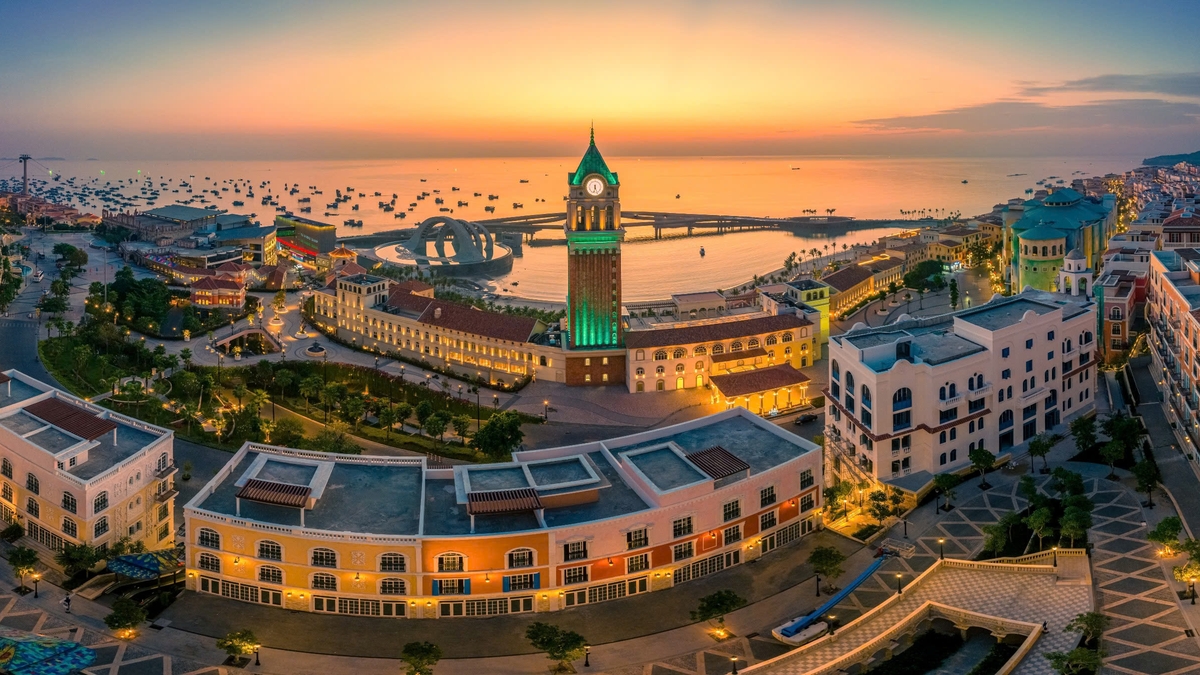




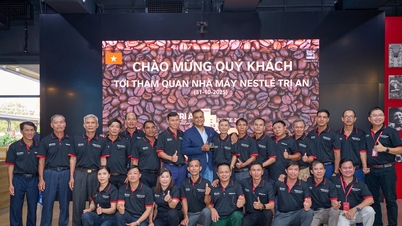



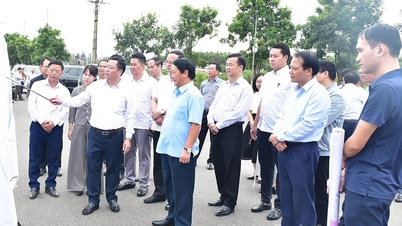

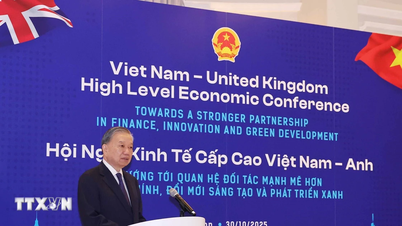

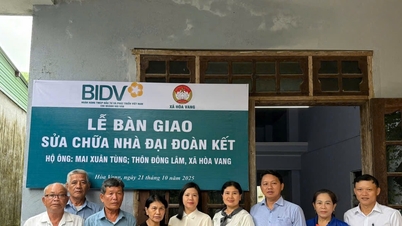

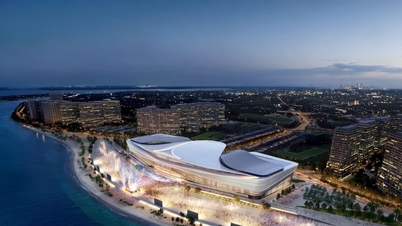
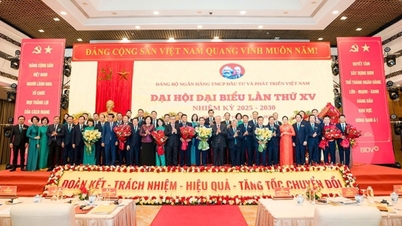

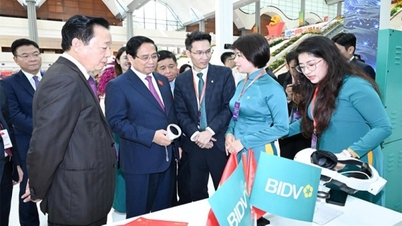

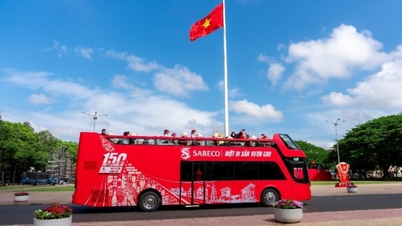

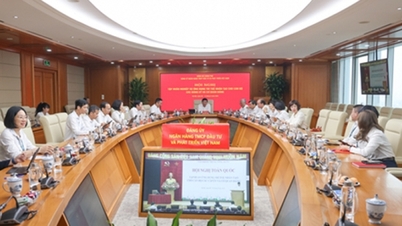




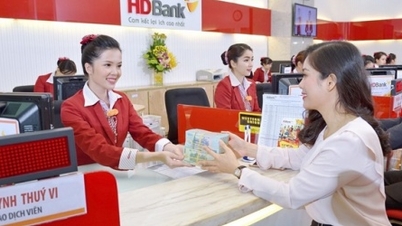


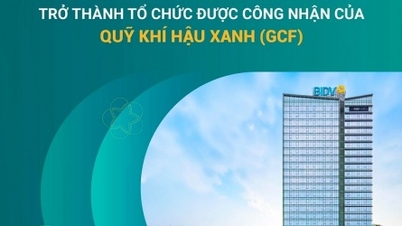
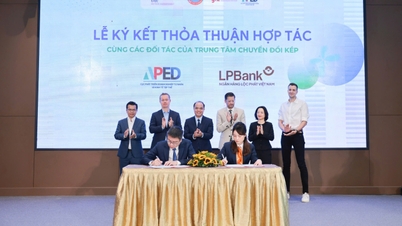
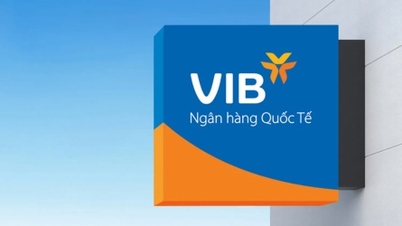

































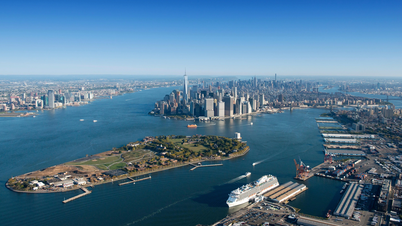

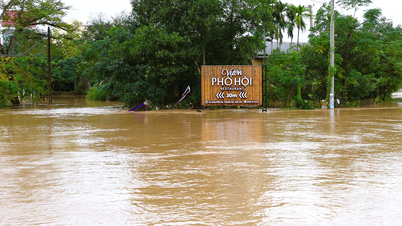
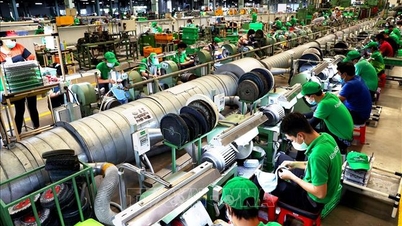



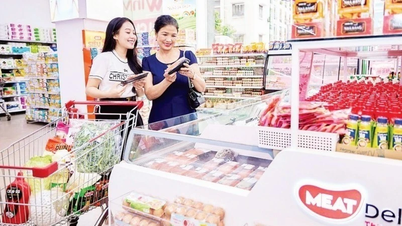

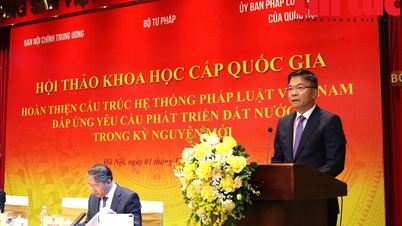

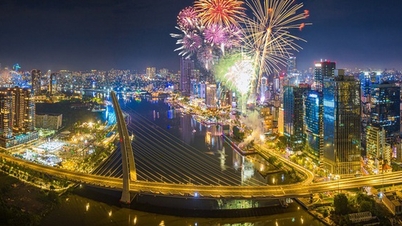






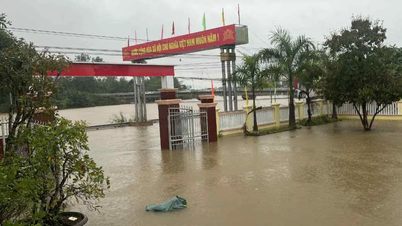

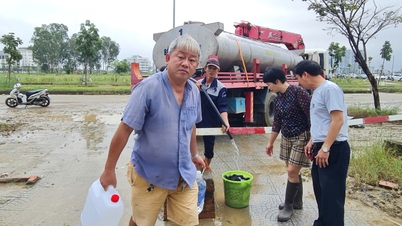

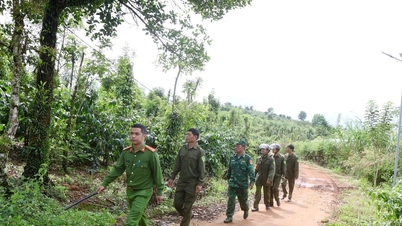





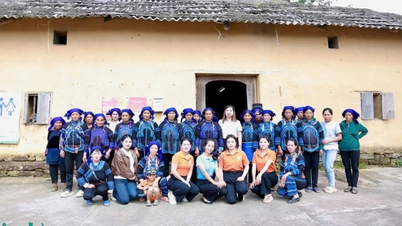















Comment (0)